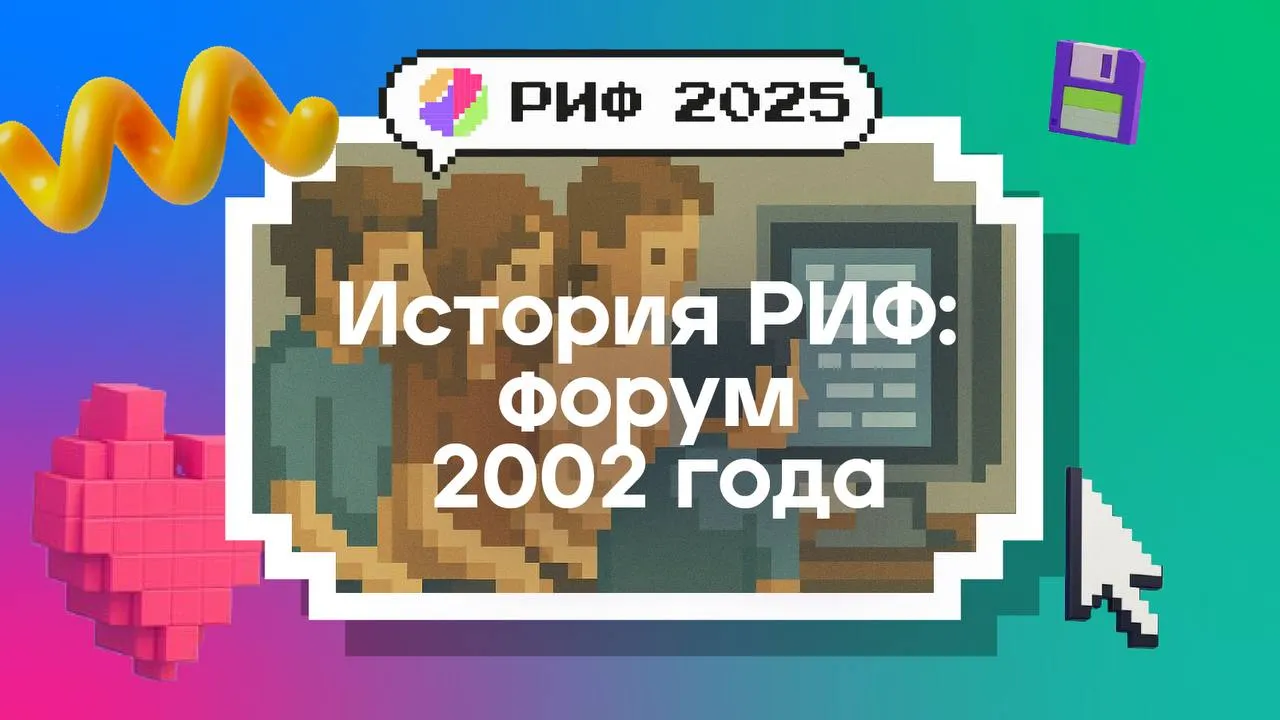RIF 2002: The Internet as a Business Environment
From March 12–15, 2002, the sixth Russian Internet Forum took place under the banner “The Internet as a Business Environment.” Discussions on e-business, infrastructure, government involvement, online media, banking and payment systems, advertising and marketing, and corporate integration drew 520 participants from 240 companies. The forum highlighted both the fragility of pure online ventures and the growing role of the internet as a backbone for traditional industries.

Under the Aegis of Government
The forum opened with remarks from Leonid Reiman, Russia’s Minister of Communications and Informatization. The three-day program included five plenary sessions, six roundtables, and 18 thematic tracks, with more than 120 presentations delivered. Alongside IT leaders, the forum welcomed government officials and the press. As usual, the event also featured an exhibition of the latest internet technologies.
It was a symbolic year for the industry. Russia launched its state program “Electronic Russia,” aimed at fostering digital transformation nationwide. Moscow State University introduced a new major in internet journalism, while flash-animated character Masyanya made her way into Leonid Parfyonov’s TV program “Namedni” on NTV. At the same time, Russia’s largest search engine reached operational self-sufficiency, and a major internet holding launched a television channel.
Minister Reiman told the audience that Runet’s service volume had grown 50% year-over-year—from $150 million to $220 million. But many RIF attendees were skeptical: most of that revenue flowed not to websites but to ISPs. Among the companies at RIF, only a handful of site owners could claim significant profits. By contrast, telecom operators dominated the stage and set the tone.
A Taste of Nostalgia
Memories of the prosperous 1999 remained fresh. By the time of RIF 2002, the monthly turnover of the most successful Runet projects earning from advertising was no more than $20,000–30,000. Most news sites and online stores managed $2,000–5,000 a month—barely enough to support two to four employees. Investment in growth was out of the question.
After six years of RIF, participants admitted that no sustainable business model for Russia’s internet segment had yet emerged. At a roundtable aptly titled “Runet: A History of Victories and Defeats,” attendees acknowledged the gap between expectations and reality.
Still, disappointment in “pure” internet business was not unique to Russia. By trial and error, the global trend was shifting priorities toward solutions for the real economy: software-as-a-service models and integration of distributed corporate systems.
Telecom firms seized the moment. Their numerical and psychological dominance at the forum defined discussions with government officials. At the roundtable “Government and the Internet,” topics included telecom industry demonopolization, pay-per-minute billing, and amendments to the telecommunications law.
The Laws of E-Commerce
Even ministerial optimism could not lift spirits in the e-commerce section. The verdict was clear: Russia’s online business sector had failed to deliver on expectations.
Global benchmarks offered some consolation. Analysts noted that digital markets typically take off once internet penetration surpasses 9–10%. In 2001, Russia’s rate was only about 3%.
Attention turned to the federal target program “Electronic Russia (2002–2010),” adopted earlier that year. Its mission: boost economic efficiency, improve public administration, and enhance quality of life through widespread adoption of digital technologies. Plans included bringing schools, libraries, and healthcare institutions online, creating public access centers, and ensuring connectivity for government offices at all levels.
Ambitious goals, but immediate results were unlikely. Success would require not only computers but also broadband backbones, multiservice regional networks, and even space-based infrastructure. Until then, many feared “Electronic Russia” would remain more vision than reality.
A Place to Meet
Despite challenges, RIF remained Runet’s main gathering point. Its greatest value lay in informal networking: the chance to meet partners, explore ideas, and lay the groundwork for contracts and joint projects. With its history and credibility, RIF was indispensable.
Participants left impressed by the quality of organization and depth of discussions. New ideas and valuable connections were the true takeaways—assets every attendee carried home.

